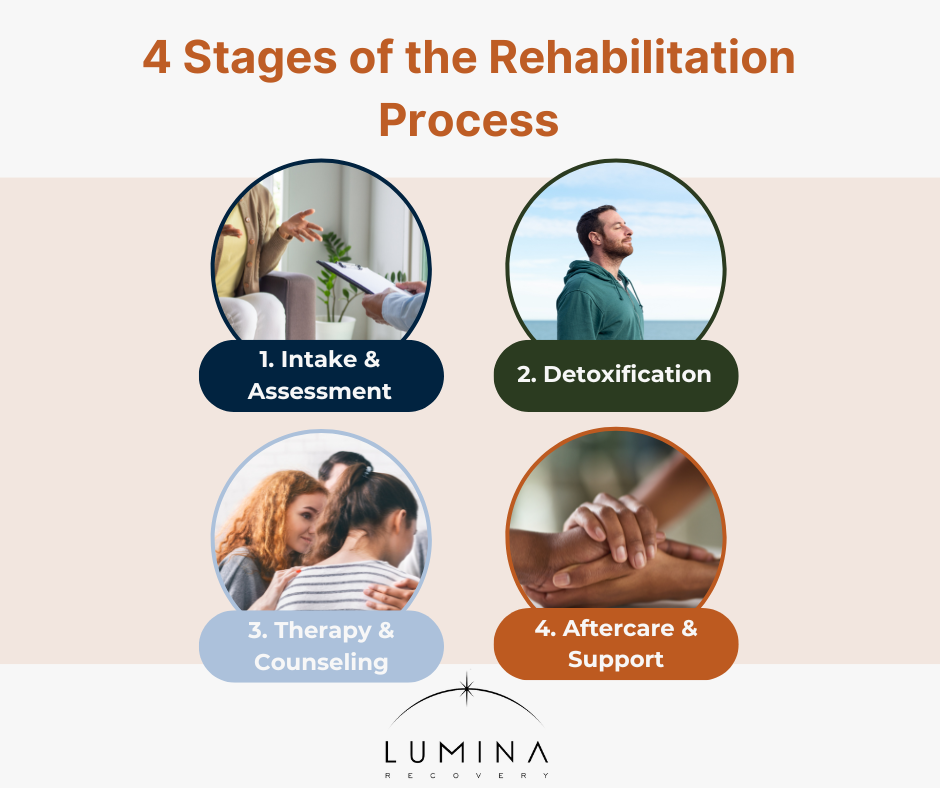Rehab programs provide medical, psychological, and social support to help people overcome substance use disorders and build a foundation for long-term sobriety. Finding reliable rehab information is essential for making informed decisions about treatment options.
Understanding what rehab is, how it works, and what to expect can empower individuals and their loved ones to take the necessary steps toward recovery. By offering a structured and supportive environment, rehabilitation helps individuals develop the skills and resilience needed to lead a sober, fulfilling life.
What Is Rehabilitation?
Rehabilitation is a comprehensive treatment process designed to help individuals overcome addiction to drugs or alcohol. The primary objectives of rehab include:
- Detoxifying the body from harmful substances.
- Addressing the psychological and behavioral aspects of addiction.
- Providing tools and strategies to maintain sobriety.
- Reintegrating individuals into society with healthier coping mechanisms.
Rehab isn’t just about stopping substance use—it’s about learning how to live a fulfilling, addiction-free life. But how does rehabilitation work? The process varies depending on the individual’s needs, but it typically involves a combination of medical supervision, therapy, and aftercare support.
4 Stages of the Rehabilitation Process
Rehabilitation is a multi-step journey designed to guide individuals from substance dependence to long-term recovery. Each stage plays a crucial role in addressing both physical and psychological aspects of addiction.
From the initial assessment to aftercare, every step is structured to support individuals in their sobriety.
1. Intake and Assessment
The rehab journey starts with an intake process, which includes:
- A thorough evaluation of medical history and substance use patterns.
- Mental health assessments to identify co-occurring disorders.
- Development of a personalized treatment plan tailored to the individual’s needs.
This stage ensures that each person receives the right level of care based on their specific challenges and goals. Understanding how drug treatment works starts with a strong foundation in individualized care.
2. Detoxification
Detox is the process of removing substances from the body under medical supervision. The severity of withdrawal symptoms varies based on the substance used and the level of addiction, ranging from minor discomfort to serious health complications. Medical professionals may provide medications to ease symptoms and ensure safety throughout detox.
Many people wonder how does drug rehab work when it comes to detox. Detox is a crucial step that prepares individuals for therapy by eliminating the physical dependence on substances. While it does not address the psychological aspects of addiction, it sets the stage for further treatment.
3. Therapy and Counseling
What does rehab do with therapy? Therapy is a crucial component of rehab, helping individuals address the root causes of addiction and develop healthier coping mechanisms. Common therapy approaches include:
- Cognitive behavioral therapy (CBT) helps identify and change negative thought patterns.
- Dialectical behavior therapy (DBT) focuses on emotional regulation and stress management.
- Individual therapy provides one-on-one counseling to address personal challenges and develop coping strategies.
- Group therapy provides peer support and shared experiences in a guided setting.
- Family therapy strengthens relationships and educates loved ones on addiction and recovery.
The goal is to help individuals understand the emotional, behavioral, and social triggers that contribute to addiction and develop strategies to manage them.
4. Aftercare and Support
Long-term recovery requires ongoing support. Aftercare planning typically includes:
- Sober living homes that provide a drug-free environment with structured support.
- Outpatient treatment programs offer continued therapy while allowing individuals to resume daily responsibilities.
- Support groups like Alcoholics Anonymous (AA) or Narcotics Anonymous (NA) provide peer encouragement and guidance.
- Telehealth counseling for those who need flexibility in their recovery journey.
Understanding how rehab provides to help individuals maintain sobriety is essential. Aftercare bridges the gap between intensive treatment and returning to daily life, reducing the risk of relapse.
Daily Life in a Rehab Center
Rehab offers a combination of therapeutic interventions, structured activities, and recovery-focused support systems that help individuals build a sober lifestyle. Some of the activities that take place throughout the day include:
- Morning Meditation or Mindfulness Exercises: Starting the day with mindfulness practices helps individuals develop a sense of calm and focus, reducing stress and anxiety.
- Therapy Sessions: Individual therapy allows participants to explore their personal challenges with addiction, while group therapy fosters a sense of community and shared learning.
- Educational Workshops: These sessions provide crucial rehab information about addiction, coping mechanisms, relapse prevention, and mental health management.
- Physical Activities: Exercise is an important part of rehabilitation, helping to restore physical health and boost mental well-being. Activities may include yoga, swimming, hiking, or gym workouts.
- Healthy Meals and Nutrition: Proper nutrition plays a vital role in recovery. Meals are planned to promote physical healing and overall well-being.
- Skill-Building Activities: Many rehab centers offer skill-building programs such as vocational training, creative arts, or life skills workshops to help individuals transition back to everyday life.
Every aspect of the program is designed to help individuals develop a sober lifestyle and learn the skills needed to maintain long-term recovery.
FAQs
Does rehab work?
Yes, rehab has helped countless individuals achieve and maintain sobriety. Success rates depend on various factors, including the individual’s commitment, the quality of the program, and ongoing support after treatment. Many rehab programs incorporate evidence-based therapies that have been proven to help people recover from addiction.
What do you do in rehab?
Rehab involves a combination of therapy, education, physical activities, and personal development. Individuals participate in structured schedules designed to help them build healthier routines and develop the skills necessary to remain sober.
How do rehab centers work?
Rehab centers provide a safe, supportive environment where individuals receive medical, psychological, and emotional support. Programs can be inpatient (residential) or outpatient, depending on the level of care needed. Inpatient rehab requires individuals to stay at the facility, while outpatient rehab allows them to live at home while attending scheduled therapy sessions.
Rehabilitation Starts at Lumina Recovery
Understanding how rehab works is the first step toward making an informed decision about seeking treatment. Whether you or a loved one is struggling with addiction, there is hope and help available.
Lumina Recovery offers compassionate and comprehensive treatment through residential inpatient programs and outpatient treatment options, ensuring individuals receive the care they need at every stage of recovery.
Don’t wait to seek help—contact Lumina Recovery today and take the first step toward a healthier, sober future.




